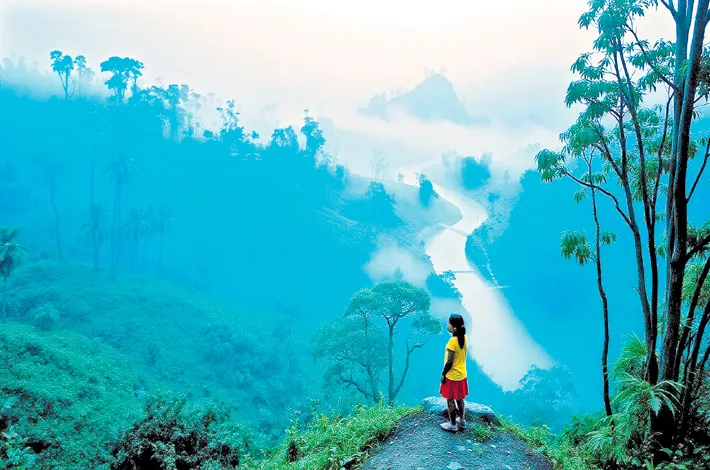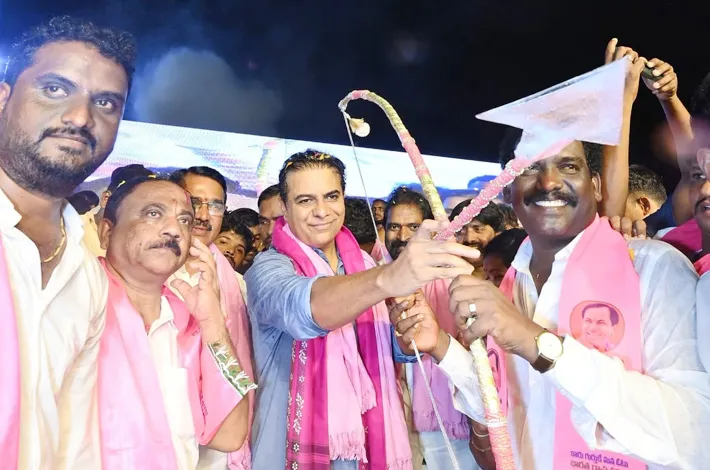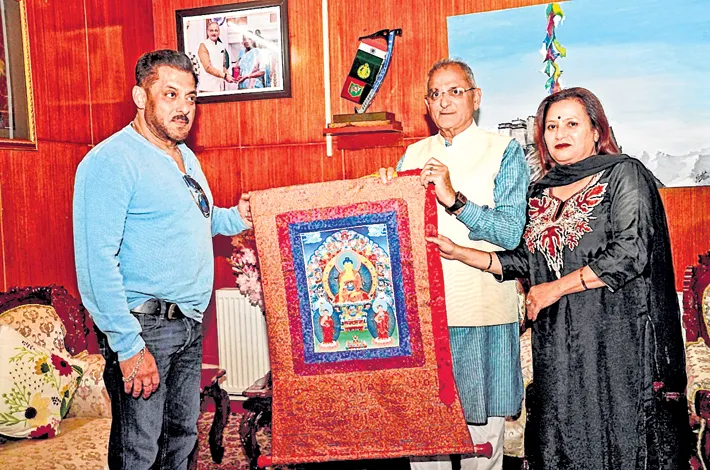The Secret of the Singing River
01-09-2025 12:00:00 AM

In the lush, misty hills of Northeast India, where the Brahmaputra River sparkled like a ribbon of silver, lived a curious ten-year-old girl named Lila. Her home was a small village in Assam, nestled between tea gardens and bamboo groves, where the air smelled of wet earth and wildflowers. Lila loved exploring the forests, chasing fireflies, and listening to her grandmother’s tales about the spirits that guarded the land.
One sunny morning, as Lila skipped along the riverbank, she heard a strange, lilting melody. It wasn’t the usual chatter of birds or the rustle of leaves—it was as if the river itself was singing. The notes were soft, like a lullaby, weaving through the ripples of the water. Lila froze, her eyes wide. “The river is singing!” she whispered.
She ran home to tell her grandmother, Amma, who was weaving a bamboo basket under the shade of a jackfruit tree. “Amma, the Brahmaputra is singing! I heard it!” Lila said, her voice bubbling with excitement.
Amma’s eyes twinkled. “The Singing River is no ordinary tale, Lila,” she said, setting her basket aside. “Long ago, the river was home to a water spirit named Sitaara. She sang to keep the forest alive, her voice bringing rain, blooming flowers, and peace to all creatures. But when people stopped caring for the river, throwing rubbish and cutting trees, Sitaara’s song grew faint. Some say she still sings, but only to those who truly listen.”
Lila’s heart raced. “I heard her, Amma! I’m sure it was Sitaara!” She decided then and there to find the water spirit and learn why her song had returned.
The next day, Lila packed a small bag with a banana, a bamboo flute, and her favorite shawl. She trekked along the river, her bare feet sinking into the cool mud. The forest buzzed with life—monkeys chattered in the trees, and a hornbill’s wings whooshed overhead. Lila hummed to herself, mimicking the melody she’d heard. As she walked, the river’s song grew louder, guiding her deeper into the forest.
Soon, she reached a quiet bend where the water shimmered like a mirror. A thick banyan tree stood nearby, its roots twisting into the ground like giant fingers. Lila sat by the river, closed her eyes, and listened. The melody was clearer now, a soft, flowing tune that made her feel warm and safe. “Sitaara, are you there?” she called softly.
To her surprise, the water rippled, and a figure appeared—not solid, but like a reflection made of light. It was a girl, no older than Lila, with eyes like deep pools and hair that flowed like the river itself. “I am Sitaara,” the figure said, her voice as gentle as the breeze. “Why have you come, child?”
Lila’s mouth fell open. “I heard your song! Why are you singing again? Amma says you stopped because people hurt the river.”
Sitaara’s glow dimmed. “The river is my home, but it grows weak. Plastic chokes my waters, and the trees that shade me are fewer each day. I sing to remind the world I’m still here, but few listen. You, Lila, heard me. Will you help?”
Lila nodded eagerly. “Yes! But… what can I do? I’m just a kid.”
Sitaara smiled. “Even a small voice can make a big difference. Take this.” She held out a tiny, shimmering pebble that glowed like a star. “Place it in the river at the village center and tell everyone my story. If they care for the river, my song will grow strong again.”
Lila clutched the pebble, its warmth tingling in her palm. She promised Sitaara she’d try, then ran back to the village, her heart pounding with purpose. When she reached the village square, where women washed clothes and children played, she stood on a rock and shouted, “Everyone, listen! The river has a spirit named Sitaara, and she’s singing for help!”
The villagers gathered, curious but skeptical. “A singing river?” muttered old Mr. Barua, scratching his head. “That’s just a story.”
“It’s real!” Lila insisted. She held up the glowing pebble, and gasps rippled through the crowd as it sparkled in the sunlight. “Sitaara says the river is dying because we’re not taking care of it. We have to stop throwing plastic and cutting trees. If we help, her song will return, and the river will stay alive!”
The village headman, a kind man named Romen, stepped forward. “Lila, you’re young, but your heart is true. Let’s see this pebble.” Lila placed it in the river, and as it sank, a soft hum filled the air, like the melody Lila had heard. The water sparkled brighter, and a gentle breeze carried the scent of blooming flowers.
The villagers were amazed. Romen clapped his hands. “Lila’s right. We’ve neglected our river. Let’s clean it up and plant new trees. Together, we can save Sitaara’s home!”
For days, the village buzzed with action. Children picked up plastic bottles, adults swept the banks, and families planted saplings along the river. Lila led the children in a song, mimicking Sitaara’s melody, and soon the whole village joined in. The river seemed to shimmer with joy, its waters clearer than they’d been in years.
One evening, as the sun painted the sky orange, Lila returned to the banyan tree. Sitaara appeared again, her glow brighter than before. “Thank you, Lila,” she said. “Your voice woke the village, and my song is strong again. Keep listening, and the river will always sing for you.”
Lila grinned. “I will, Sitaara. I promise.”
That night, as Lila lay in bed, she heard the river’s melody through her window, soft and sweet. She knew Sitaara was happy, and the forest would thrive again. From then on, the village cared for the Brahmaputra like a friend, and Lila, the girl who heard the river sing, became a hero in every heart.








